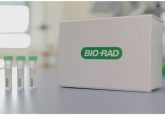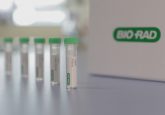Researchers dissscover broadly neutralizing antibody against snake neurotoxins

Researchers have found a new human monoclonal antibody that can neutralize snake neurotoxins across species and geographies.
Snakebites present a neglected public health issue in many tropical and subtropical countries; therefore, there is a need to develop new and improved treatments. An international collaboration of researchers led by the Technical University of Denmark (DTU; Kongens Lyngby, Denmark) have found a broadly neutralizing human antibody that is effective against the venom of African and Asian elapid snakes, including some cobra, mamba and krait species, which are among the world’s deadliest snakes.
An estimated 5.4 million people are bitten by snakes each year, and roughly half of those people are injected with venom. Between 81,000 and 138,000 people die as a result of snakebites, while around three times as many are left with permanent disabilities. Currently, primary treatments against envenomings are mixtures of polyclonal antibodies derived from the blood of immunized animals. While these treatments work, they can cause adverse reactions, so the search for new, safer antivenoms is ongoing.
 Does anemone venom have the power to beat chronic pain?
Does anemone venom have the power to beat chronic pain?
Researchers have found that sea anemones produce specific venoms in different regions depending on their intended function, creating a path to more straightforward drug design.
To address this, the researchers used phage display technology to discover human antibodies that can bind tightly to the neurotoxins in the snake venom and therefore enable neutralization. They selected hundreds of antibodies and tested them against toxins found in different snake venoms and found one antibody – 2554_01_D11 – that could bind to various toxins, including those present in the venoms of the king cobra and black mamba.
They tested the antibody in vitro and in vivo and found that it successfully prevented or delayed death from venom. For example, the antibody completely prevented death in mice injected with monocled cobra venom. While the antibody did not prevent death in mice injected with black mamba venom, it did prolong survival for several hours, suggesting that the antibody can partially neutralize black mamba venom.
“The antibody we used worked against different neurotoxins derived from different snake species from different parts of the world. These toxins are far from identical but share some crucial similarities in their structure. And apparently, these are just enough for our antibody to display extensive cross-reactivity. We have yet to establish the boundaries of what this antibody can neutralize. Still, we would like to see if it shows the same promise concerning neurotoxins from, for example, the blue krait, the banded krait, and the Egyptian cobra,” commented Andreas Hougaard Laustsen-Kiel (DTU), co-corresponding author of the study.
The researchers believe that this technique for discovering fully human, broadly neutralizing antibodies – which have fewer adverse reactions – will be helpful when developing treatments against toxins from other animals, as well as bacteria, viruses, parasites and even anticancer therapies.





